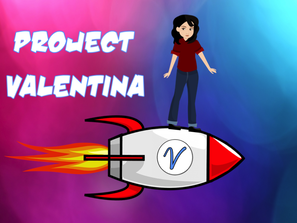 The tagline of the InnovaSpace Valentina project is ‘Science is for girls too!’ – an ideal we very much support, and an excellent example of which is Space Physiologist, Dr. Julia Attias, who is a PhD Researcher at King's College London. I had the pleasure of meeting Julia a few years ago when she was doing her Master’s degree in Space Physiology and Health (2012) at King’s College London, which then led on to her completing a PhD in Space Physiology (2018). Julia is passionate about inspiring young ladies to pursue a career in the STEM areas, and dedicates some of her time to writing blogs for websites such as WISE (Women In Science and Engineering), and a charity, GlamSci, aimed at breaking down perceived stereotypes and barriers to STEM areas. We asked Julia a few questions about her life and path to becoming a space physiologist: 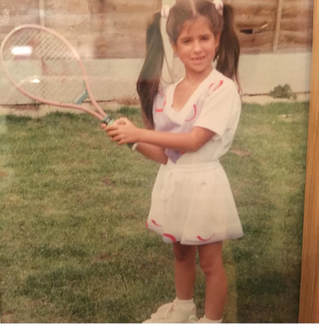 What sort of child were you? I can say I was a very energetic child and very focused on sports activities from a very early age. My Mum was a tennis coach, so from about the age of about 4 years old, I could be found running around a tennis court, gripping my first racquet in hand, on which someone had spray-painted the letter ‘J’. Naturally enough by the time I started school my favourite subject was PE (physical education), at which I was always very competitive indeed! What were your school years like? I was lucky enough to go to great schools; I enjoyed my school years and made some good friends. At primary school I sometimes used to get in trouble for talking too much, but in fact it wasn’t just idle chatter for the sake of it, it was my constant curiosity about anything and everything that made me ask questions and comment out loud - too loud sometimes! I loved music (probably inspired by my Dad who was a drummer) and being in plays at primary school, and continued this on into my teenage years when I joined the Pineapple Performing Arts School in Covent Garden. I learned street dance, singing and acting there, and grew up wanting to be in front of the camera - this ambition I have since achieved through participating in a Discovery Channel series called 'Meet The SuperBrains' and more recently in the Channel 4 series 'Food Unwrapped''. What sparked your interest in science? Through all my sporting activity, the idea that humans are designed to move around was embedded in me from a very young age. I would run around the tennis court and wonder why my heart beat so much faster, curious about the mechanisms involved within our body that allow us to run and jump, and improve our endurance and strength. In PE we began to have lessons about sports theory and I soon realised that science was a field of study that could answer some of my questions, whilst at the same time posing so many more questions that still required responses. This hooked my interest and I began to enjoy the triple sciences at high school, especially biology, as I could learn more about how the human body functions. This really did direct the path of my career as I then went on to take a sports science degree at university. 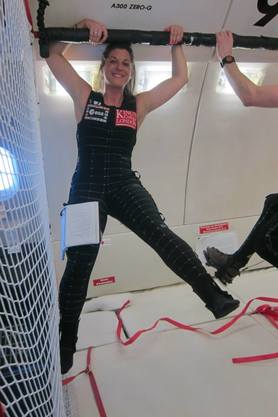 Enjoying an ESA parabolic flight campaign research experience! Enjoying an ESA parabolic flight campaign research experience! How did you jump from sports to space science? I certainly wouldn’t describe myself as a ‘space-geek’ and I never started off with the intention of a career in space science. I was never drawn to watching sci-fi programs on TV or films, like Star Wars or Star Trek, but what I really found interesting when I did my degree was learning about how the body functions in extreme environments, and you can’t really get more of an extreme environment than being up in Space! Quite by chance I found out that King’s College do a Master’s degree in Space Physiology and Health, and so I jumped at the chance of doing in, and the rest is history! There is an overlap between sports science and space physiology because of the fundamental scientific concepts that exist between them, but there are many other science disciplines you can study where you will also find this overlap, for example nutrition, medicine, pharmacy, engineering, physiotherapy, and many, many more. 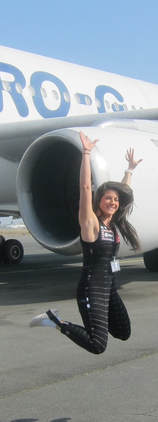 What advice would you give to girls who are at school right now? Don’t be put off by the STEM subjects at school and try to study some of them. You might have no idea at the moment what career you want to follow, but if you have some of the core subjects there it will always help you, as they always overlap with so many other areas. Don’t be put off by stereotypes of the sciences and engineering being only for boys – times are changing and will continue to change. As a woman in the area of space science, I have to admit that I still see far fewer women than men when I look around the conference room of a scientific congress, however, I don’t see this as a negative - I see it as a golden opportunity for me to make my mark and to help change attitudes for the future generation. Try to find something you feel passionate about – this will fill you with the motivation you need to work hard, be determined, and succeed. And to finish off a few random questions... Comments are closed.
|
Welcometo the InnovaSpace Knowledge Station Categories
All
|
InnovaSpace Ltd - Registered in England & Wales - No. 11323249
UK Office: 88 Tideslea Path, London, SE280LZ
Privacy Policy I Terms & Conditions
© 2024 InnovaSpace, All Rights Reserved
UK Office: 88 Tideslea Path, London, SE280LZ
Privacy Policy I Terms & Conditions
© 2024 InnovaSpace, All Rights Reserved

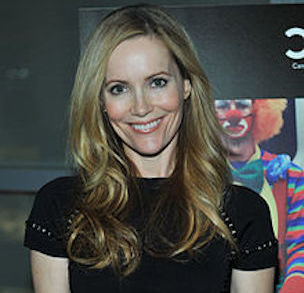
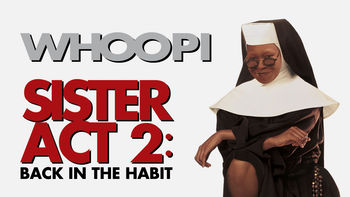

 RSS Feed
RSS Feed